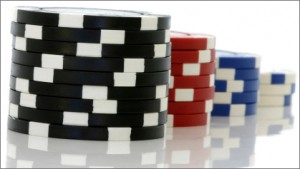 In science, much significance is placed on peer-reviewed publication, and for good reason. Peer review, in principle, guarantees a minimum level of confidence in the validity of the research, allowing future work to build upon it. Typically, a paper (the current accepted unit of scientific knowledge) is vetted by independent colleagues who have the expertise to evaluate both the correctness of the methods and perhaps the importance of the work. If the paper passes the peer-review bar of a journal, it is published.
In science, much significance is placed on peer-reviewed publication, and for good reason. Peer review, in principle, guarantees a minimum level of confidence in the validity of the research, allowing future work to build upon it. Typically, a paper (the current accepted unit of scientific knowledge) is vetted by independent colleagues who have the expertise to evaluate both the correctness of the methods and perhaps the importance of the work. If the paper passes the peer-review bar of a journal, it is published.
Flyceum: Your Science. Your Career.
We’re following in the tradition of open discussions among scientists that has resulted in important advances in both science and society.
The Evolution of Scientific Impact
by
Email. The E is for Eeeeevil.
by
How Do You Say Hoechst?
by
There’s a street in Nashville, Tennessee called “Demonbreun”. It’s a sure-fire way to tell tourist from local. Anyone can bust out a “y’all”, but utter “Demon-brewin’” and your cover is blown. Oh, and there will be laughter.
In science, there are a number of words that, if horribly mispronounced, can make us look like a hack and of course, will elicit laughter. In many situations, a word’s pronunciation may be more stylistic – like you say “toe-may-toe”, I say “toe-mah-toe.” This is not one of those situations. This word has an answer. After sitting through hundreds of seminars and group meetings and still not understanding how the word was actually supposed to be pronounced, I figured it’s time to get the answer.
Why is the Postdoc So Stressful?
by
 Today we’re following-up on Friday’s post (A degree of stress), in which we observed a trend towards elevated levels of stress during our postdocs. Although the trend emerged from only a small sample size, it seemed to be striking enough to warrant further consideration. Namely, why is the postdoc so stressful and what, if anything, can we do to alleviate it?
Today we’re following-up on Friday’s post (A degree of stress), in which we observed a trend towards elevated levels of stress during our postdocs. Although the trend emerged from only a small sample size, it seemed to be striking enough to warrant further consideration. Namely, why is the postdoc so stressful and what, if anything, can we do to alleviate it?
A Degree of Stress
by
 A number of factors influence the stress levels we feel in lab including our project, boss, funding, spouse, kids, weight… the list goes on. In research, there are predictable periods of elevated stress, such as the Ph.D. qualifying exam and defense, which undoubtedly shaved years off the end of our lives. But are there global trends to the stress patterns we can anticipate through the early part of our career in research?
A number of factors influence the stress levels we feel in lab including our project, boss, funding, spouse, kids, weight… the list goes on. In research, there are predictable periods of elevated stress, such as the Ph.D. qualifying exam and defense, which undoubtedly shaved years off the end of our lives. But are there global trends to the stress patterns we can anticipate through the early part of our career in research?
The Importance of Side Projects
by
The Shadow of the Ph.D.
by
How to Become a Successful Scientist
by
 Standing in the magazine section of Walgreen’s, I ran across a list of the “Top 10 ways to run a risky business”. As I read it, it became clear that the principles were arguably more relevant to creating a successful scientist! I’ve reworked the list and tailored it to the bench researcher and our experiments in the laboratory.
Standing in the magazine section of Walgreen’s, I ran across a list of the “Top 10 ways to run a risky business”. As I read it, it became clear that the principles were arguably more relevant to creating a successful scientist! I’ve reworked the list and tailored it to the bench researcher and our experiments in the laboratory.
Interestingly, the title of the original list included the word “risky”. Considering the inherently risky nature of scientific research, I think the list is more appropriately titled:[Continue Reading…]
How to Make a Bacterial Spreader
by
It was another late night in lab and we were looking to film a protocol that would demonstrate a common technique while using a minimal number of words. We quickly came up with a pretty large list of candidates, but decided on the spreader because it’s just plain fun…
It Worked Three Times…
by
 Out of how many? That should always be the next question. If your paycheck was deposited successfully into your bank account only once a year, I hope the conclusion would not be “Direct deposit works. It just works one out of twelve times…”
Out of how many? That should always be the next question. If your paycheck was deposited successfully into your bank account only once a year, I hope the conclusion would not be “Direct deposit works. It just works one out of twelve times…”
Returning to the basics, it’s important to remember this definition, from the Merriam-Webster dictionary:
[Continue Reading…]




